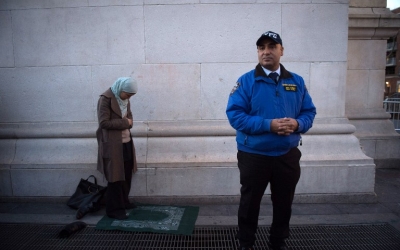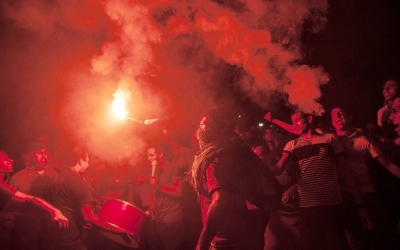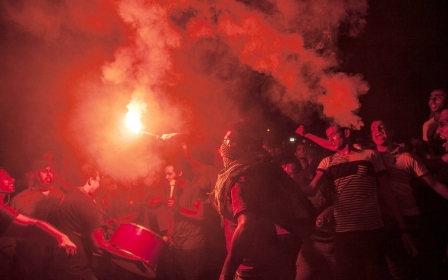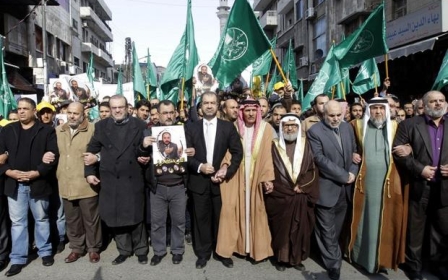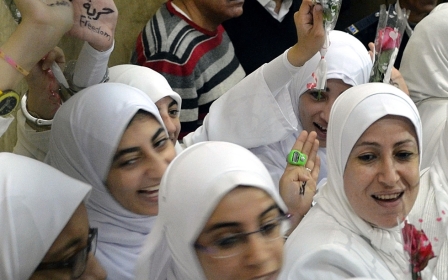Trump pushing to designate Muslim Brotherhood as terrorist group
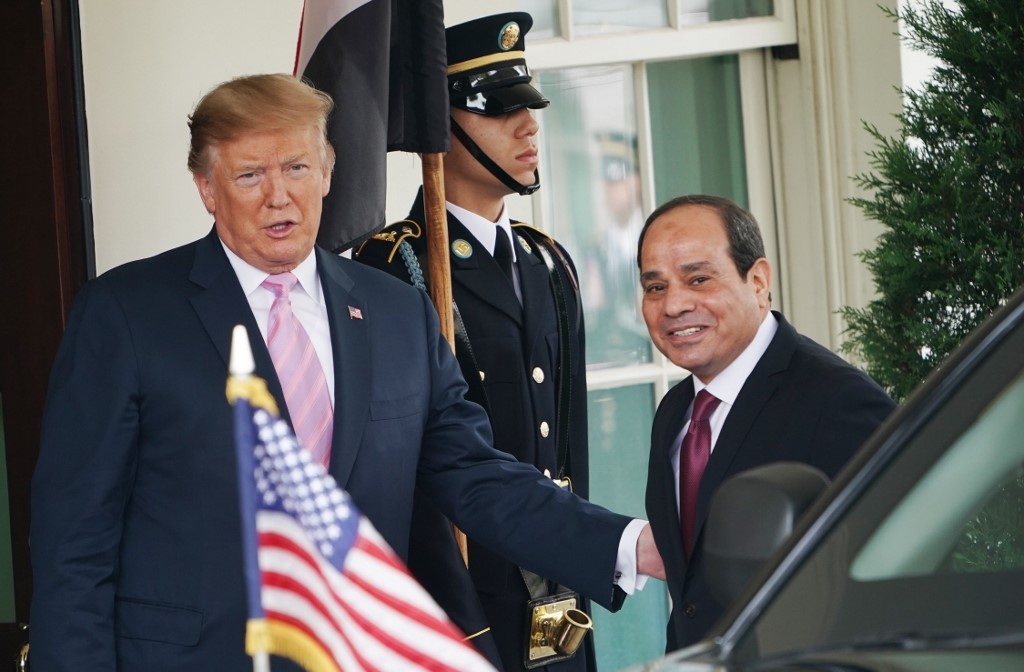
The Trump administration is working on issuing an order that would designate the Muslim Brotherhood as a foreign terrorist organisation, a US official has revealed.
"The president has consulted with his national security team and leaders in the region who share his concern, and this designation is working its way through the internal process," Sarah Huckabee Sanders, the White House press secretary, said in a statement published by the New York Times (NYT) on Tuesday.
The designation would create wide-ranging economic and travel sanctions on companies and individuals who interact with the Muslim Brotherhood.
US President Donald Trump's decision follows a visit to the White House on 9 April by Egyptian President Abdel Fattah el-Sisi.
The Brotherhood is Sisi's main source of opposition in Egypt, and the Egyptian president reportedly asked Washington to crack down on the group.
Trump responded positively to Sisi's request in a private meeting between the two men, the NYT reported, saying it would make sense.
Some of Trump’s advisers have seen that as a commitment, officials told the NYT.
The Muslim Brotherhood is one of Islam's most influential political movements with millions of members across the world.
US Secretary of State Mike Pompeo and National Security Adviser John Bolton support the designation, officials told the NYT.
But the defence department, career national security staff, government lawyers and diplomatic officials have laid down legal and policy objections, and have been attempting to find a more limited step that would satisfy the White House, according to the newspaper.
Egypt's Muslim Brotherhood said on Tuesday it would continue to work in line with "our moderate and peaceful thinking", Reuters news agency reported.
"We will remain ... steadfast in our work in accordance with our moderate and peaceful thinking and what we believe to be right, for honest and constructive cooperation to serve the communities in which we live, and humanity as a whole," the Brotherhood said in a statement on its official website.
"The Muslim Brotherhood will remain stronger - through God's grace and power - than any decision," the statement added.
In a similar vein, Turkey's ruling AK party said the US move would hamper democratisation efforts in the Middle East and serve militant groups like the Islamic State (IS) group.
Omer Celik, spokesman for Turkish President Tayyip Erdogan's Islamist-rooted AK Party, said such a decision by the US would "undoubtedly yield extremely wrong results regarding stability, human rights, basic rights and freedoms in (Middle East) countries," he said.
"At the same time, (Trump's move) is the biggest support that can be given to the propaganda of Daesh," he said, using a different acronym for IS.
Political prisoners
Sisi led the Egyptian army's overthrow of the democratically elected president Mohamed Morsi, a Muslim Brotherhood member, in 2013.
Since then Egypt has jailed thousands of Muslim Brotherhood members, sentencing many to death.
International rights groups have estimated that at least 60,000 political prisoners have been detained in Egyptian jails since 2014, with the actual number likely higher.
In a recent interview with CBS news, Sisi said that Egypt had "no political prisoners".
In 2014, Saudi Arabia and the United Arab Emirates, both of which had supported the overthrow of Morsi, designated the Muslim Brotherhood as a terrorist group.
In 2017, the British government rowed back from the main conclusion of a controversial 2014 review into the Muslim Brotherhood conducted by John Jenkins, the UK's then-ambassador to Saudi Arabia, which suggested that the organisation had served as a “rite of passage” for violent militants.
Instead, it appeared to agree with an assessment offered by the UK parliamentary Foreign Affairs Committee (FAC), following its inquiry into the government's policy towards "Political Islam" in 2016, which concluded that political Islamists were a "firewall" against violent extremism and should be engaged with, either when in power or in opposition.
The government said it agreed with the committee's conclusion that religion and politics would overlap for the foreseeable future and stated that "the vast majority of political Islamists are not involved in violence”.
Middle East Eye delivers independent and unrivalled coverage and analysis of the Middle East, North Africa and beyond. To learn more about republishing this content and the associated fees, please fill out this form. More about MEE can be found here.


